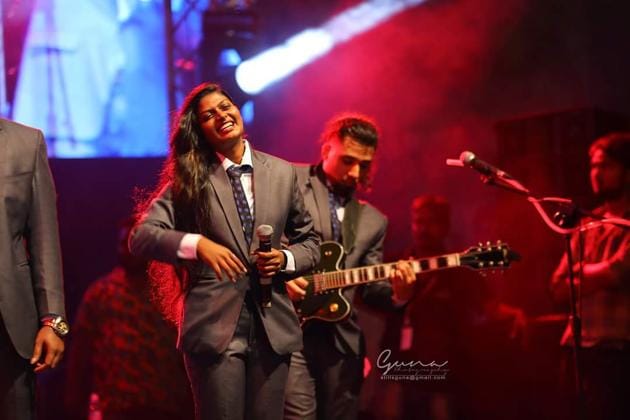Isaivani: The pathbreaking woman gaana singer now on a BBC Top 100 list
The 24-year-old discusses her journey, the politics of patriarchy and caste, and what drives the music of the band she’s in, The Casteless Collective.
Isaivani is simultaneously warm and fierce.

She was recently featured on the BBC’s 2020 list of the world’s 100 most inspiring and influential women, alongside actor and activist Jane Fonda, Oxford University coronavirus vaccine researcher Sarah Gilbert, and three other Indians — Bilkis Bano for her activism, the para-athlete Manasi Joshi, and teen climate activist Ridhima Pandey.
“Isaivani is a distinctive gaana singer… [which] can be considered an achievement by itself. Isaivani has successfully broken an age-old tradition, which has led other young female gaana singers to come forward and express themselves,” the BBC said in its note.
The gaana tradition can be traced to the 17th century, when Sufi singers sang of life, death, friendship, love and daily struggles, to mark the deaths of slaves in north Madras, so that in death they might find liberation. Over the years, locals adapted the songs, added lively percussion, fast-paced melodies.
It just feels unreal, says the 24-year-old, speaking over phone from Chennai. “I’m very happy but I can’t believe it.”
A self-taught artist — “my father is a musician who plays the harmonium. I learnt by listening to him play,” she says — Isaivani has for three years been part of a gaana fusion band called The Casteless Collective. They are known for taking what were songs of mourning and rewriting the lyrics to turn them into pieces of political commentary.
Much of that commentary relates to caste. Some of it relates to the politics of patriarchy and the dual marginalisation of the Dalit woman. The band is made up of 12 poets and musicians aged 20 to 32. Isaivani is the only woman, but not the only Dalit.
What’s it like being the only woman in the band and the first known woman singer in the genre? “I grew up in a slum where there was no difference between men and women so I felt no fear or awkwardness,” she says.
Isaivani began her music career as a cover artist, singing Tamil film songs. “I discontinued my studies in Class 12 because I wanted to sing. ‘Isai’ means music in Tamil, so I guess it was destined,” she says.
She began to cover modern renditions of gaana songs because she found they got a good response from young audiences, “because of their catchy tunes, I think, and the socially and politically relevant lyrics”.
To supplement her income, she took jobs in data entry and at the post office. Then, in 2017, gaana singer and music composer Sabesh Solomon called and told her that the filmmaker Pa. Ranjith was forming a band and it could be a good platform for her. “So I went for an audition where Tenma, the co-founder, immediately okayed me. That’s how I entered The Casteless Collective,” she says.
In 2018, the band released Beef Song in reaction to the lynching of Dalits; in 2019 they made news again with I’m Sorry Ayyappa, on the issue of women being allowed into the Sabarimala temple.
People began to notice that there was a woman in this band of gaana singers; some began to complain that she shouldn’t be in it. “No one has the right to decide what I can like or want to do,” she says. “The Casteless collective is about speaking out about our problems, the problems of the marginalised, women, men, transgender people, farmers and more. Expressing our pain through music.”
From the time she joined the band, Isaivani has had the tremendous urge to break the glass ceiling of being a slum woman from a lower caste and succeed as a gaana singer, says Tenma. “The rage that emanates when she performs on stage is inspiring. The political and cultural issues that we raise in our songs have predominantly been discussed by men. When a woman does it so boldly, it makes a big statement, makes some cracks in the shields of patriarchy,” he adds.
Isaivani says she has a long way to go. “I want to write my own songs in the future. More importantly, the purpose of my journey is that more women should come into this. I’m working towards that.”
(With Divya Chandrababu in Chennai)





